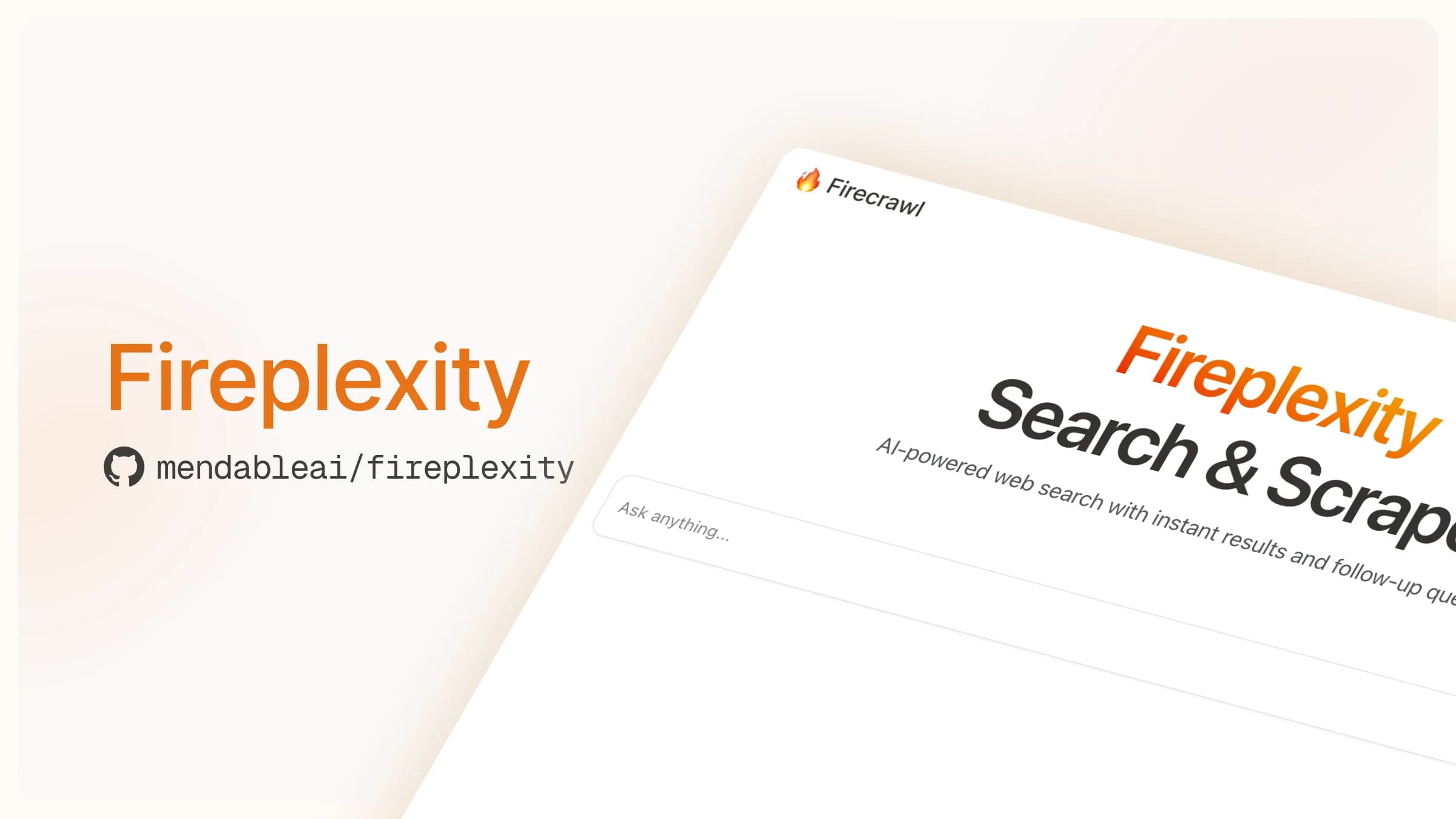
Perplexity proved that search could be better. Instead of a list of links, you could get a direct answer with citations. That simple idea kicked off a race, with every major player trying to bolt web search onto their AI. Today, we’re releasing Fireplexity, an open source Next.js application that lets you build and host your own AI powered answer engine.
What is Fireplexity?
Fireplexity is an open source Perplexity clone for developers who want to build their own custom AI search experiences for any niche. We built it to be production ready from day one.
- Deploy in 5 minutes: Get a running answer engine, fast.
- No vendor lock in: It’s open source. You get full access to the code and control your own destiny.
- Real time intelligence: It uses Firecrawl for reliable web scraping, intelligently selects the best content, and synthesizes answers with citations.
How It Works (The Tech)
Getting direct answers instead of links requires a few things to work together perfectly. Here’s a look under the hood:
- Firecrawl for Web Search: We use our own tool, Firecrawl, to handle JavaScript rendering and reliably scrape the content needed for answers. It handles the hard stuff.
- Smart Content Selection: Simple keyword searches aren't enough. Our algorithms score content for relevance and find the most important information on a page.
- Streaming AI Synthesis: Answers are generated in real time with inline citations using GPT-4o-mini, but you can swap it for any OpenAI compatible endpoint.
- Interactive Citations: Every part of an answer is backed by a source. Users can hover over a citation to preview it instantly.
We even built in live stock chart detection for over 180 companies to show what’s possible when you control the entire pipeline.
Build Your Own Today
Stop waiting for someone else to build the tool you need. Use Fireplexity to power an internal knowledge base, create a specialized research tool, or build any domain specific answer engine you can imagine.
It’s available now on GitHub and our live demo is here. Clone the repository, add your API keys, and get started.

data from the web